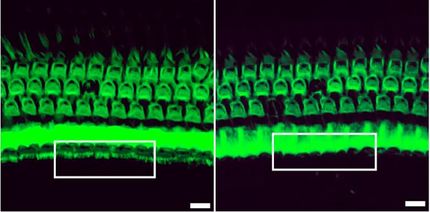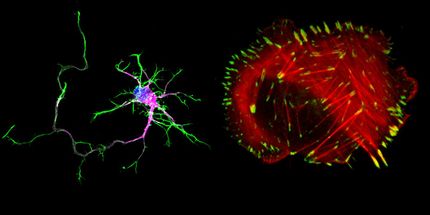Gene elevating breast cancer risk also causes prostate cancer
An international multi-centre research effort, including Karolinska Institutet, has identified a new genetic defect as a potential heritable breast cancer susceptibility candidate. To some extent, prostate cancer also seems to be caused by the discovered PALB2 mutation.
The two major familial breast cancer susceptibility genes BRCA1 and BRCA2 only explain 20-30 per cent of families with site-specific female breast cancer, which suggests the contribution of additional susceptibility genes. About a year ago scientists at the Dana-Farber Cancer Institute in Boston identified a novel BRCA2 binding factor, PALB2 that regulates certain key functions of normal BRCA2 activity. The next step was to set out to evaluate the newly detected PALB2 gene as a potential heritable breast cancer susceptibility candidate by screening for disease-related alterations. The research, to begin with, involved comprehensive screening for genetic aberrations in 113 Finnish breast cancer families. The same constitutional mutation in PALB2 was observed in three families.
It was later shown that the relevant mutant protein is deficient in its ability to support the kinds of DNA damage responses in which PALB2 normally participates. Further, the mutation was also investigated in 1,918 specimens from an unselected series of Finnish breast cancer individuals. This study revealed 18 mutation-positive individuals, about one per cent of the studied patients, most of which turned out to have a familial pattern of disease development.
The study also involved 141 unselected male breast cancer patients, 188 familial and 288 unselected colorectal cancers, as well as 164 familial and 475 unselected prostate cancer patients. In prostate cancer, one multigenerational cancer family was found where cancer occurred in several generations and all patients showed the single mutation in PALB2 that was studied, suggesting that this Finnish founder mutation may be important in heritable prostate cancer as well. Male breast cancer and colorectal cancer cases did not display the mutation.
The multi-centre research was coordinated at Oulu University Hospital, Finland, by Dr Robert Winqvist. However, Dr Winqvist points out that more research needs to be done to better assess the effect on cancer development.
"As the comprehensive mutation analysis was originally conducted on only 113 cancer families, it may be that there still are other PALB2 genetic defects accounting for heritable breast and prostate cancer susceptibility", he says. "Recent results also imply that PALB2 might be a cancer susceptibility gene in other populations as well. It´s been shown that two of the mutations identified in Fanconi anemia patients in non-Finnish populations seem to be associated with familial breast cancer."
The discovery of the genetic mutation PALB2 was made by PhD student Hannele Erkko at the Oulu laboratory. Bing Xia at Dana-Farber Cancer Institute was in charge of key analyses to prove the biological significance of the mutation. Also involved in the project was Professor Juha Kere, Karolinska Institutet, among other researchers from Tampere, Kuopio and Helsinki universities or university hospitals in Finland as well as from the US National Cancer Institute.
Original publication: "A recurrent mutation in BALB2 in Finnish cancer families"; Nature 2007.
Most read news
Topics
Organizations
Other news from the department science

Get the life science industry in your inbox
By submitting this form you agree that LUMITOS AG will send you the newsletter(s) selected above by email. Your data will not be passed on to third parties. Your data will be stored and processed in accordance with our data protection regulations. LUMITOS may contact you by email for the purpose of advertising or market and opinion surveys. You can revoke your consent at any time without giving reasons to LUMITOS AG, Ernst-Augustin-Str. 2, 12489 Berlin, Germany or by e-mail at revoke@lumitos.com with effect for the future. In addition, each email contains a link to unsubscribe from the corresponding newsletter.






















































